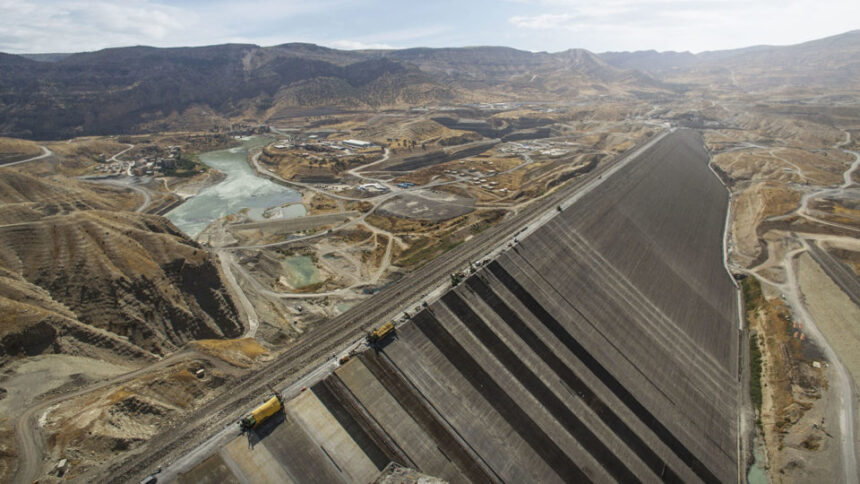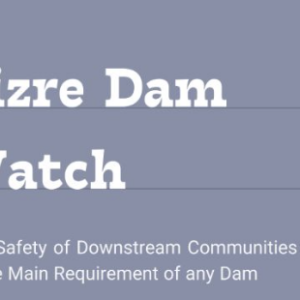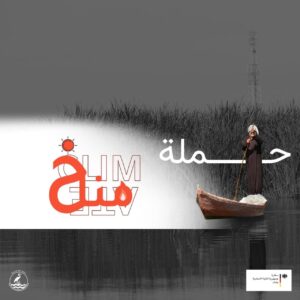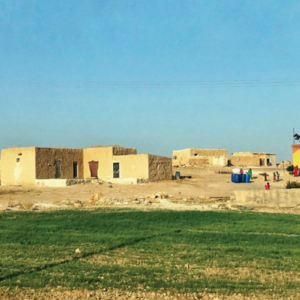
Save the Tigris Campaign has been working for years to protect the Tigris River from the effects of dams that pose a danger to the water levels, and therefore this effect extends to the environment of Iraq as a whole, as there is a close relationship between Climate change and water shortage. In our region, as heat temperature increases, the high evaporation rates of the water increases, which coincides with the lack of rainfall. As dams hold large quantities of water within large areas, they are clearly increasing evaporation and thus causing additional water scarcity.

The scarcity of water in Iraq is one of the most important challenges faced by human and the environment in the region, and certainly, this scarcity is due to the climate change and unsustainable policies to manage the water that your country and our country depend on, which are riparian countries on the Tigris River and its tributaries. Instead, we invite you, the Turkish government, to review the damage of the dam. We also call for opening new horizons of cooperation and negotiation with the Iraqi government, in which the shares of the two riparian states are determined, like; how to distribute the damage, each state’s obligations and rights to its neighbor, to take the Convention of the Law of the Non-navigational Uses of International Watercourses of the United Nations of 1997 into consideration, and most importantly take into consideration the texts that says ” Parties of this Agreement take into account the problems that affect many international watercourses and caused by the increase in pollution and consumption of water”. And also, “the importance of international cooperation and good-neighborliness” as stated in article VI “factors relating to equitable and reasonable utilization” and article VII “Not to cause significant harm”.

We also should refer to 1972 convention concerning The Protection Of The World Cultural And Natural Heritage, which states, in Article 4 “Each State Party to this Convention recognizes that the duty of ensuring the identification, protection, conservation, presentation and transmission to future generations of the cultural and natural heritage referred to in Articles 1 and 2 and situated on its territory, belongs primarily to that State. It will do all it can to this end, to the utmost of its own resources and, where appropriate, with any international assistance and co-operation, in particular, financial, artistic, scientific and technical, which it may be able to obtain”.
Also we should mention the United Nations 1992 convention on biological diversity, which contains two important articles, the first one is Article 11 (Incentive Measures: Each Contracting Party shall, as far as possible and as appropriate, adopt economically and socially sound measures that act as incentives for the conservation and sustainable use of components of biological diversity). Also, article 14 (Impact Assessment and Minimizing Adverse Impacts). These articles indicate that each contracting party should aim to preserve biological diversity and take the necessary measures to protect this diversity and to eliminate all the threats using any possible mean.

We, Humat Dijlah Association, Save the Tigris Campaign, and Iraqi Civil Society express our hope that the Turkish government will take this message of great importance in studying and analyzing the environmental and humanitarian consequences that will be left by the process of the flood of the dam, not only to Iraq but to all the riparian states on the Tigris River.
Signed by:
• Humat Dijlah Association (Tigris River Protectors \ Iraq)
• Save the Tigris Campaign
• The Iraqi Social Forum
• Dhi Qar Social Forum
• Sports Against Violence/ Iraq
• Nawaah Center for Development and Human Rights
• Tikrit Youth Council
• Tikrit Center for Volunteerism
• Tikrit Social Forum
• The Peace Forum in Heat
• Chakovian Organization for Development and Culture
• Babelia Social Forum
• Diwaniyah Environment and Peace Forum
• Humat Alfurat (Euphrates protectors) – Basrah
• Humat Alfurat (Euphrates protectors)-Hit
• Humat Alfurat (Euphrates protectors) -Ramadi
• Humat Alfurat (Euphrates protectors) -Falluja
• Humat Alfurat (Euphrates protectors)-Nasiryah
• Humat Dijlah (Tigris Protectors) – Diyala
• Humat Dijlah (Tigris Protectors) – Maysan
• Al-Ghad Foundation for Dialogue and Development
• Iraqi Observatory for the Prevention of Extremism
• Information Center for Research and Development
• Waterkeepers Iraq-Kurdistan





Leave a Reply